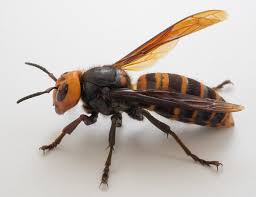The Threat of Asian Hornets Nests in the UK

Introduction
The Asian hornet (Vespa velutina), a non-native species, has been increasingly reported in the United Kingdom, raising concerns among environmentalists, beekeepers, and the general public. Originating from Southeast Asia, this invasive species poses a significant threat to local ecosystems and honeybee populations, which are vital for pollination and agriculture. Understanding the impact of Asian hornets and the measures taken to mitigate their spread is crucial for safeguarding our natural resources.
Recent Sightings and Changes
In recent years, sightings of Asian hornet nests have surged across various regions in the UK, particularly in southern England. The Nest Identification Scheme has documented a number of nests ranging from the New Forest to Cornwall, prompting swift responses from experts. The nests are typically constructed high in trees and can grow to the size of a soccer ball. These nests often do not survive winter, but their ability to quickly reproduce in spring poses a problem when new queens emerge.
The Impact on Local Ecosystems
Asian hornets are known predators of honeybees, which they hunt to feed their larvae. Reports show that these hornets can have a dramatic impact on local honeybee populations. Beekeepers in affected areas have reported significant losses, leading to concerns about the future of beekeeping and, by extension, the pollination services that honeybees provide. Moreover, the decline of bee populations can adversely affect crop yields and the overall health of local flora.
Government Response and Public Awareness
In response to the growing threat of Asian hornets, the UK government has implemented a range of control measures, including public education campaigns encouraging citizens to report any sightings of the insects or their nests. The National Bee Unit is also actively working to monitor and eradicate nests as quickly as possible. By raising awareness and employing a collaborative approach, experts hope to contain the spread of this invasive species.
Conclusion
The presence of Asian hornets in the UK highlights the complex challenges posed by invasive species in managing ecosystems. Their impact on local bee populations can have far-reaching consequences for biodiversity and agriculture. Ongoing monitoring and public cooperation are essential for mitigating their spread. Moving forward, continued research and community engagement will play critical roles in safeguarding the UK’s natural environment from the threat posed by Asian hornets.









